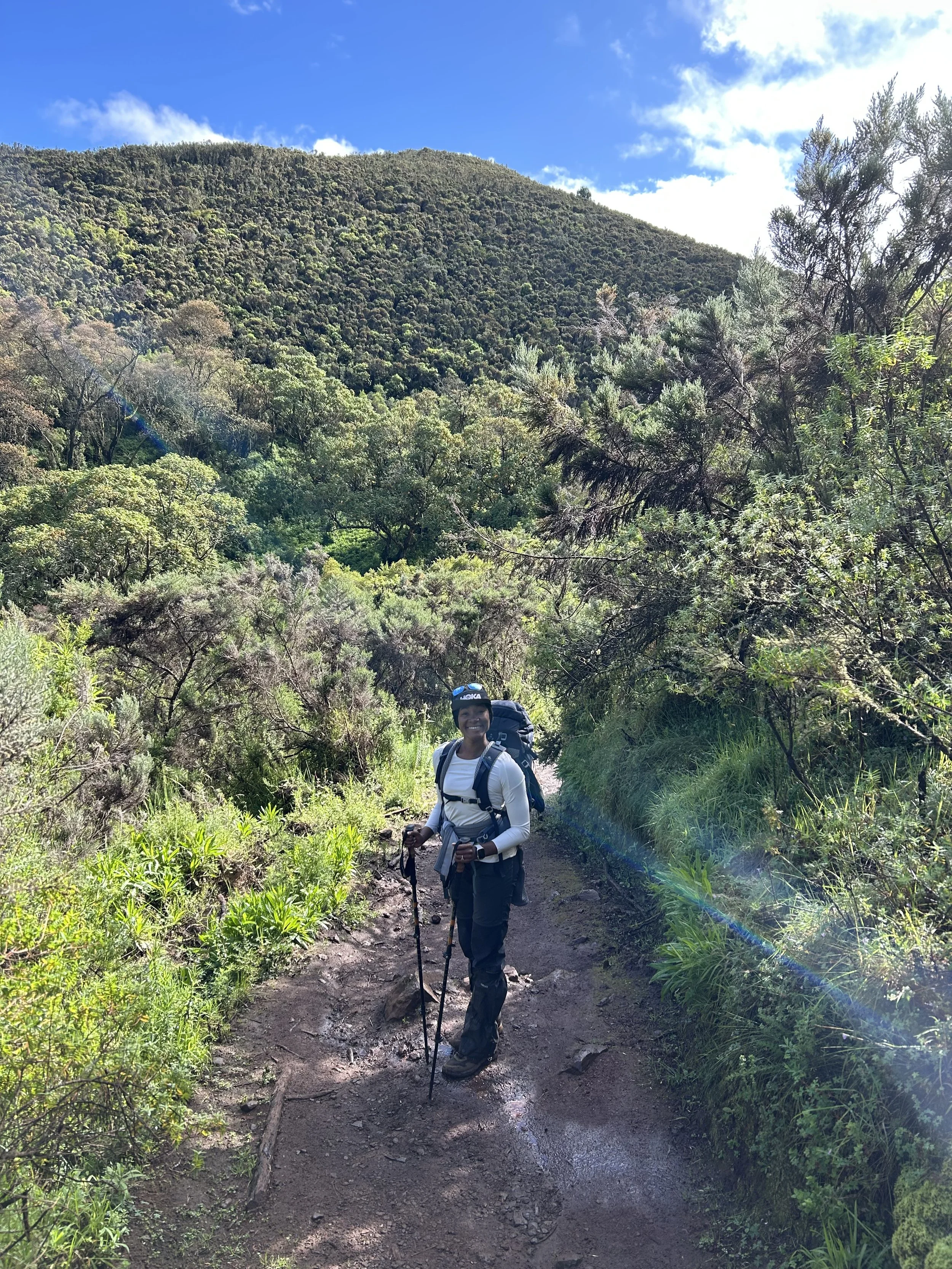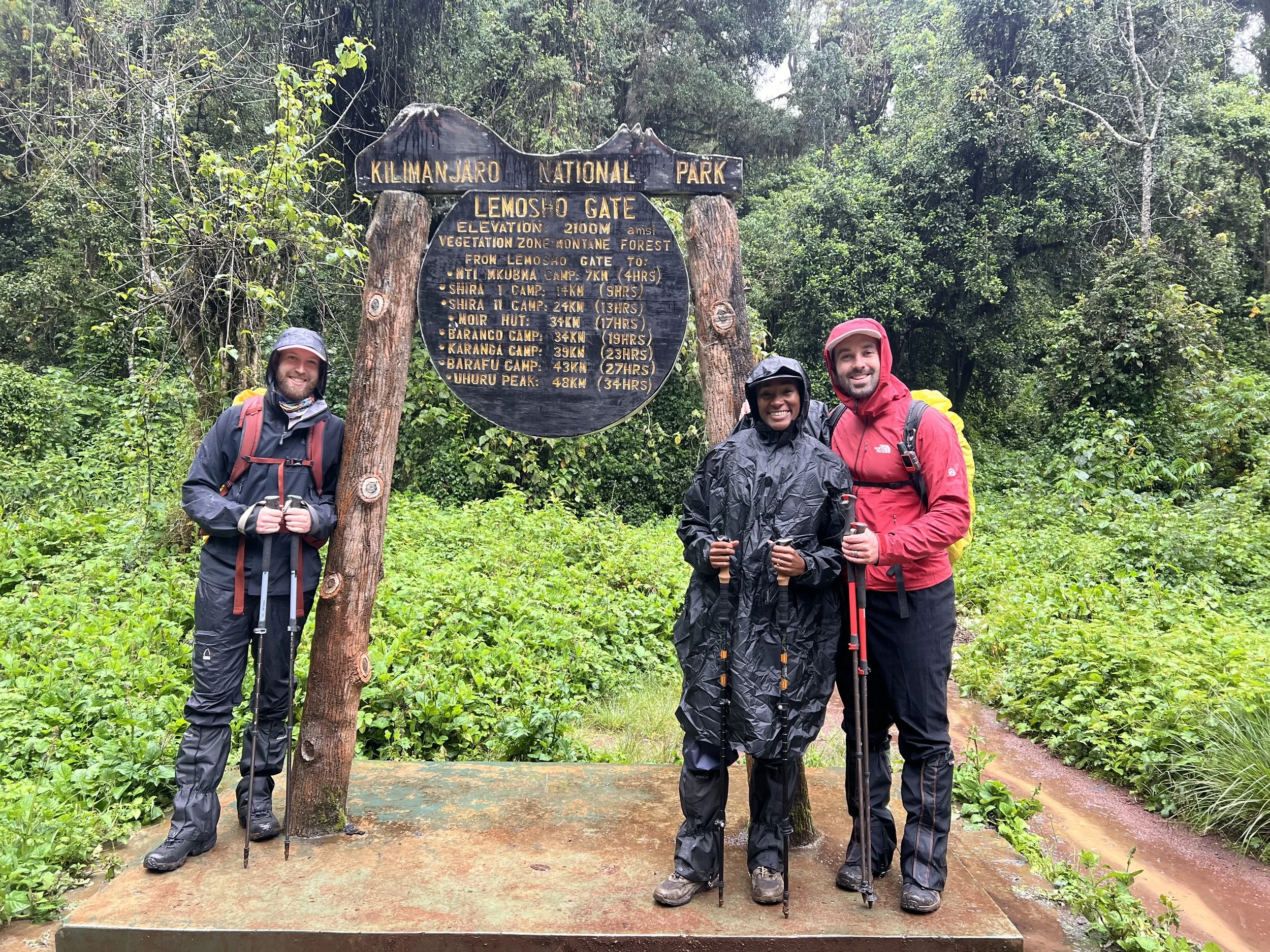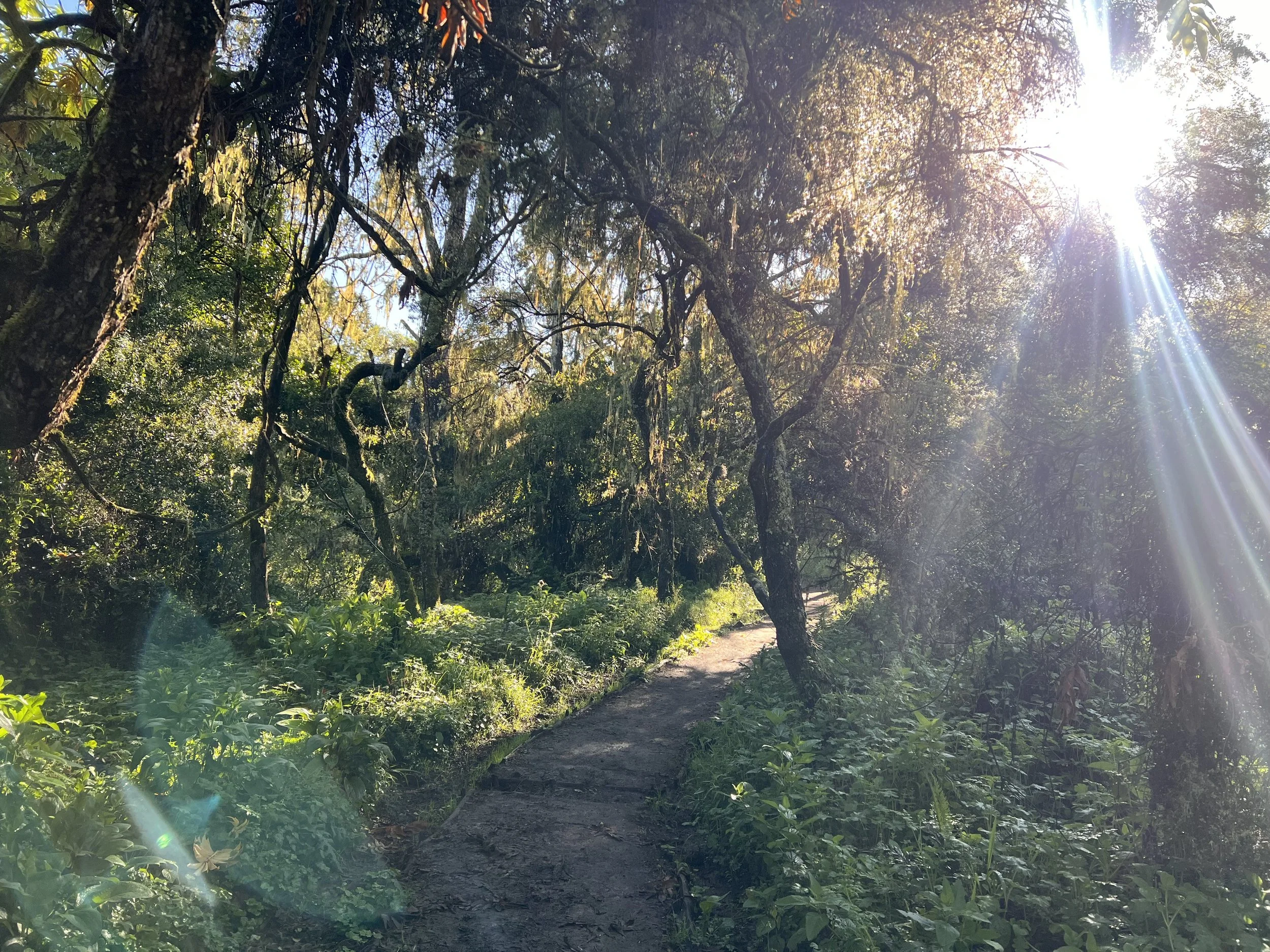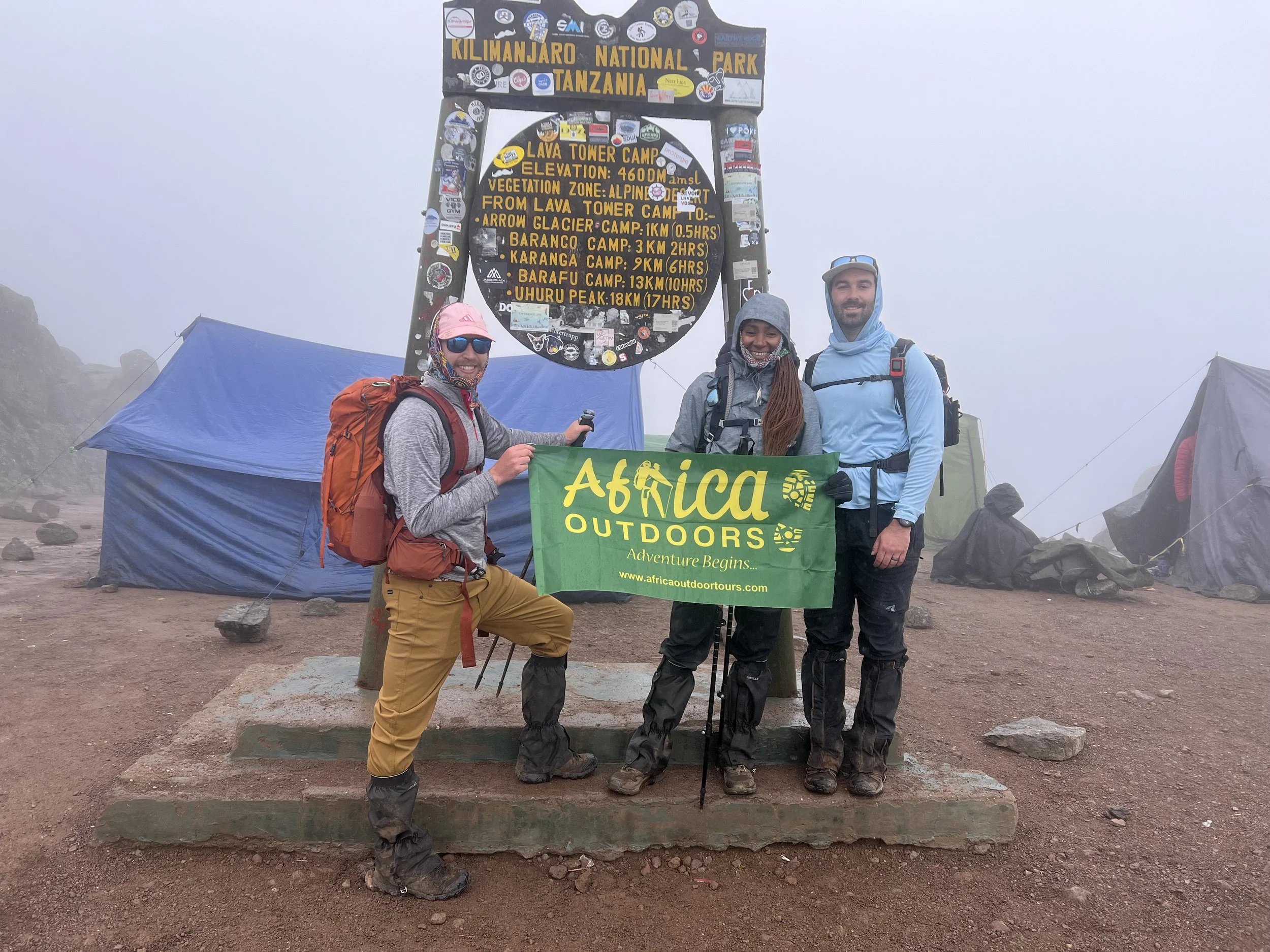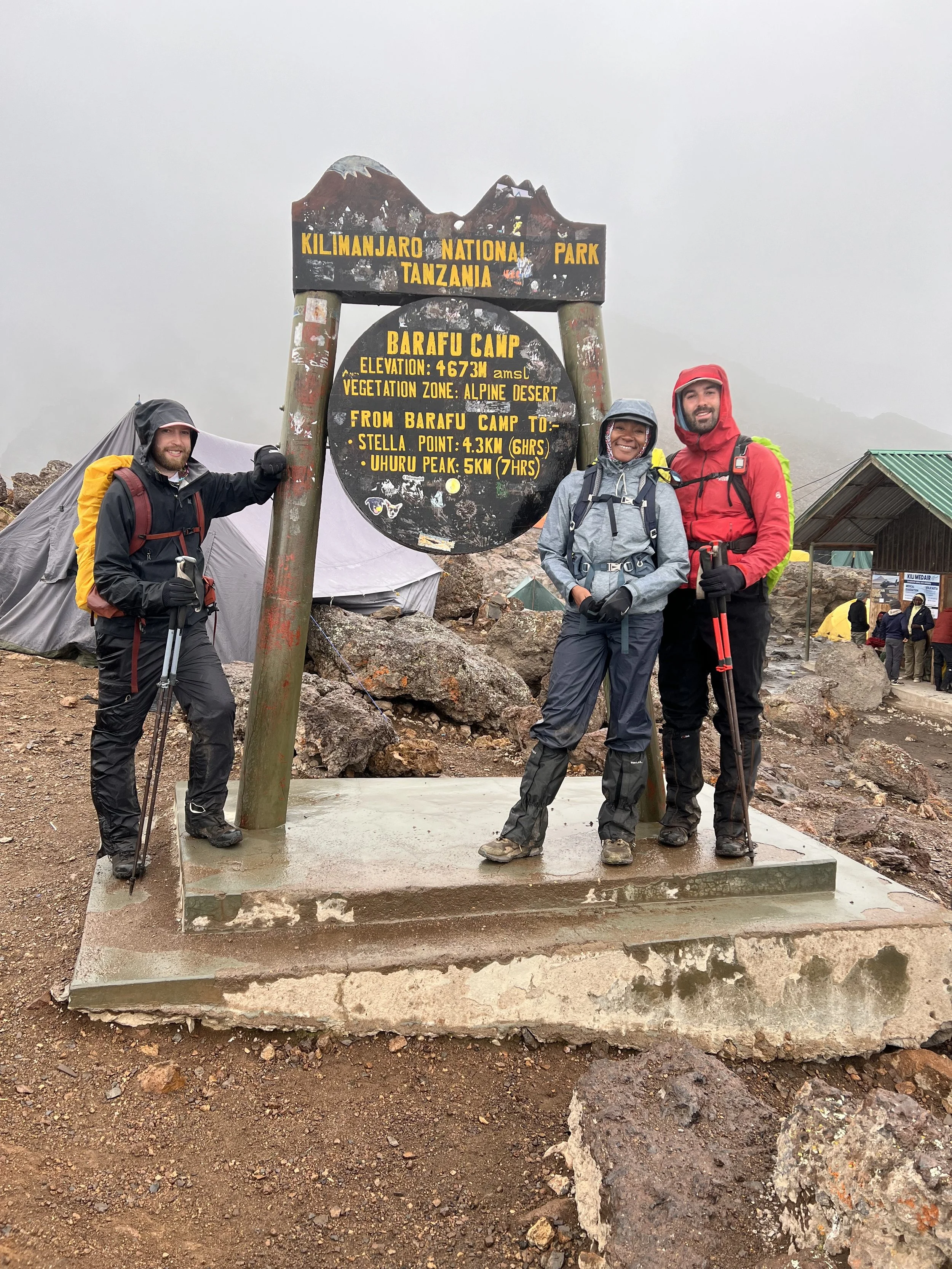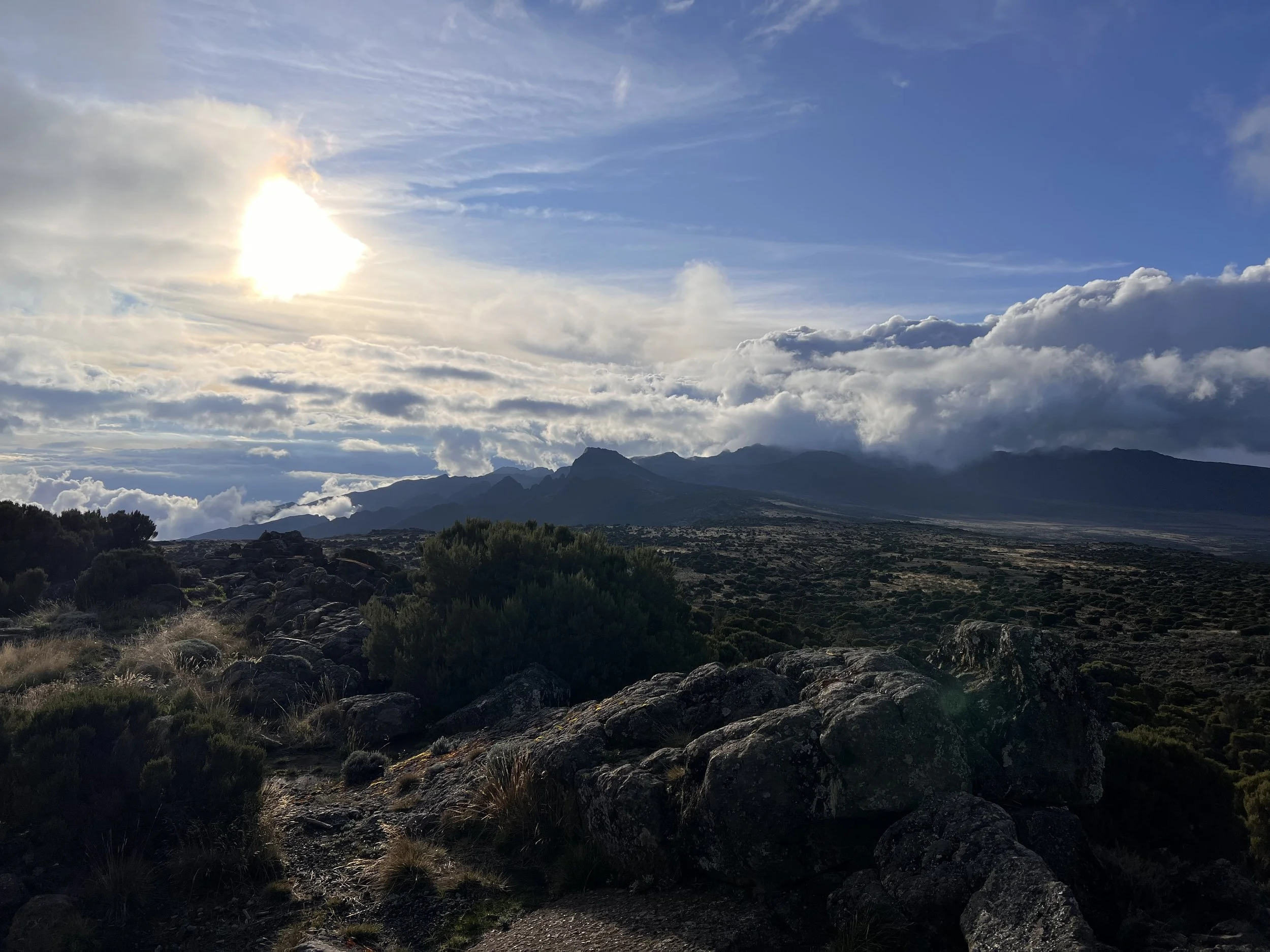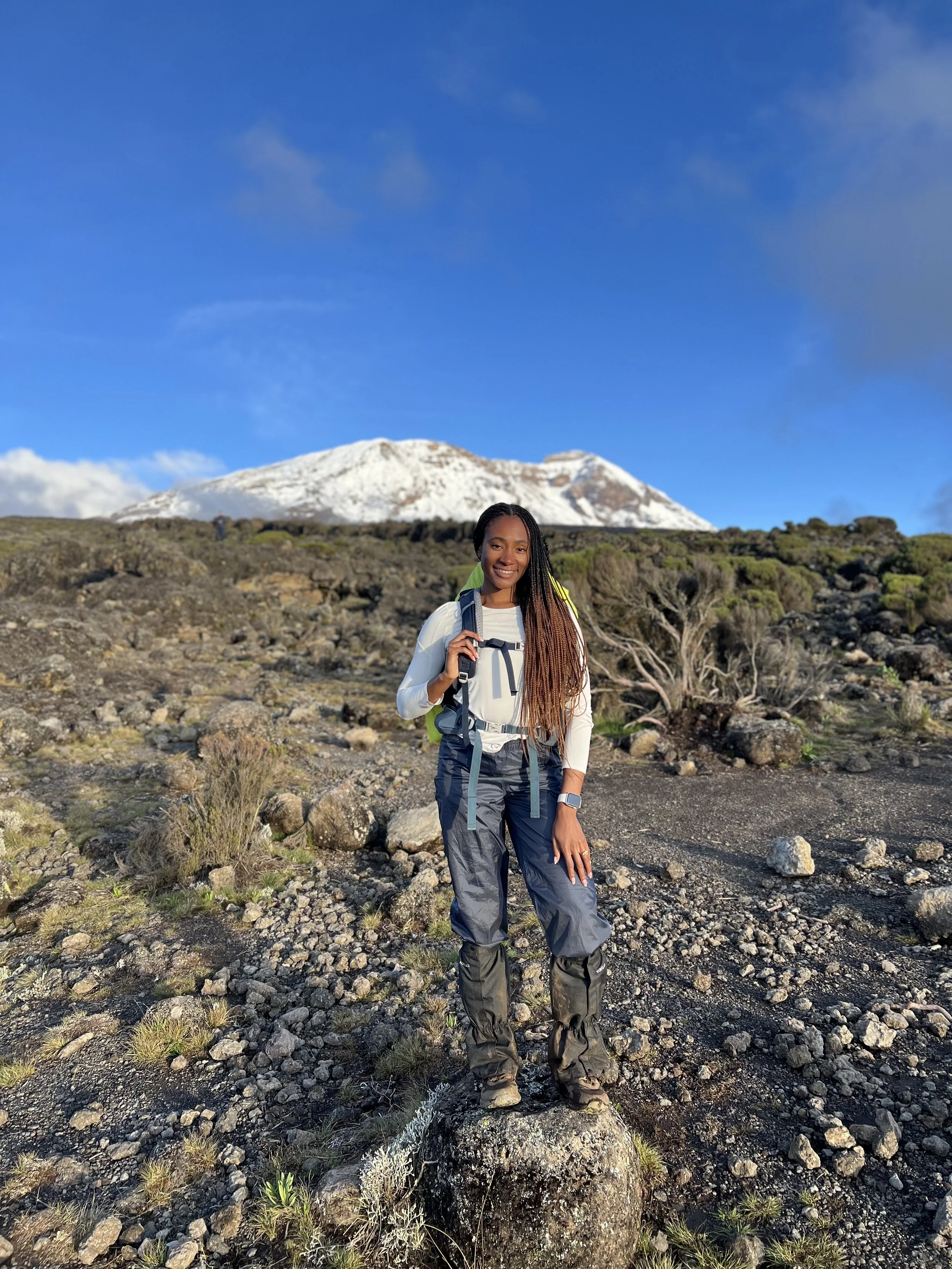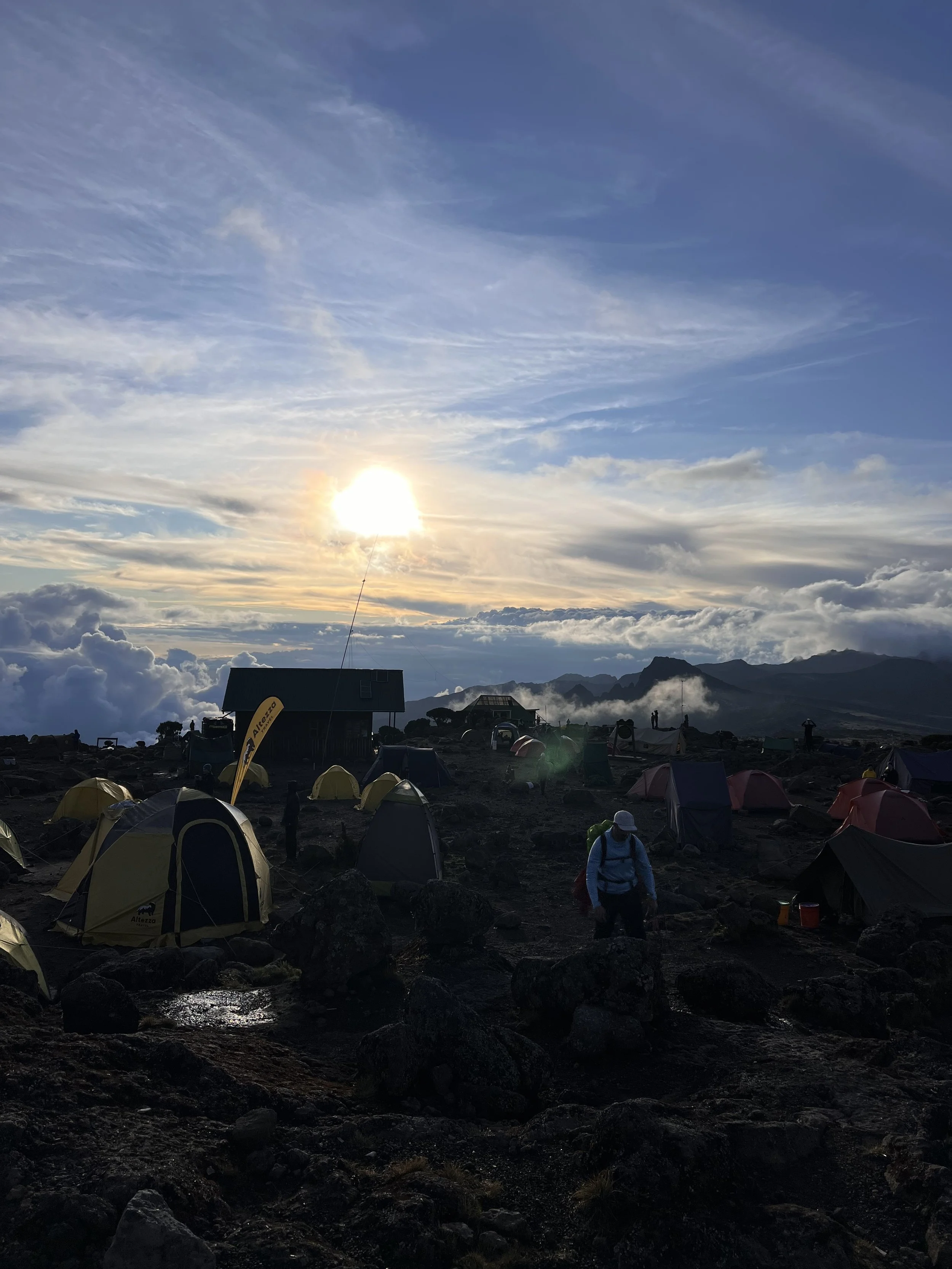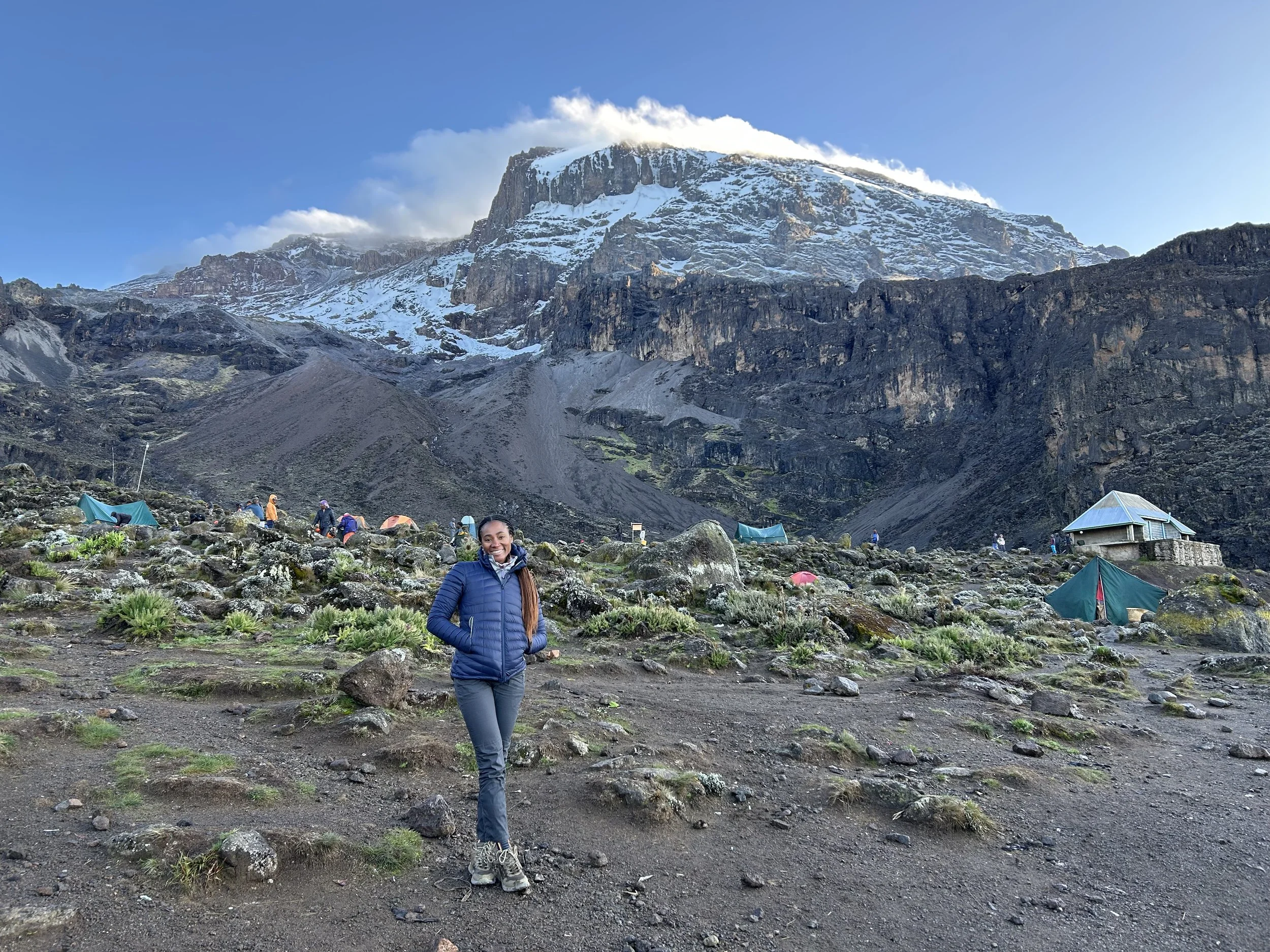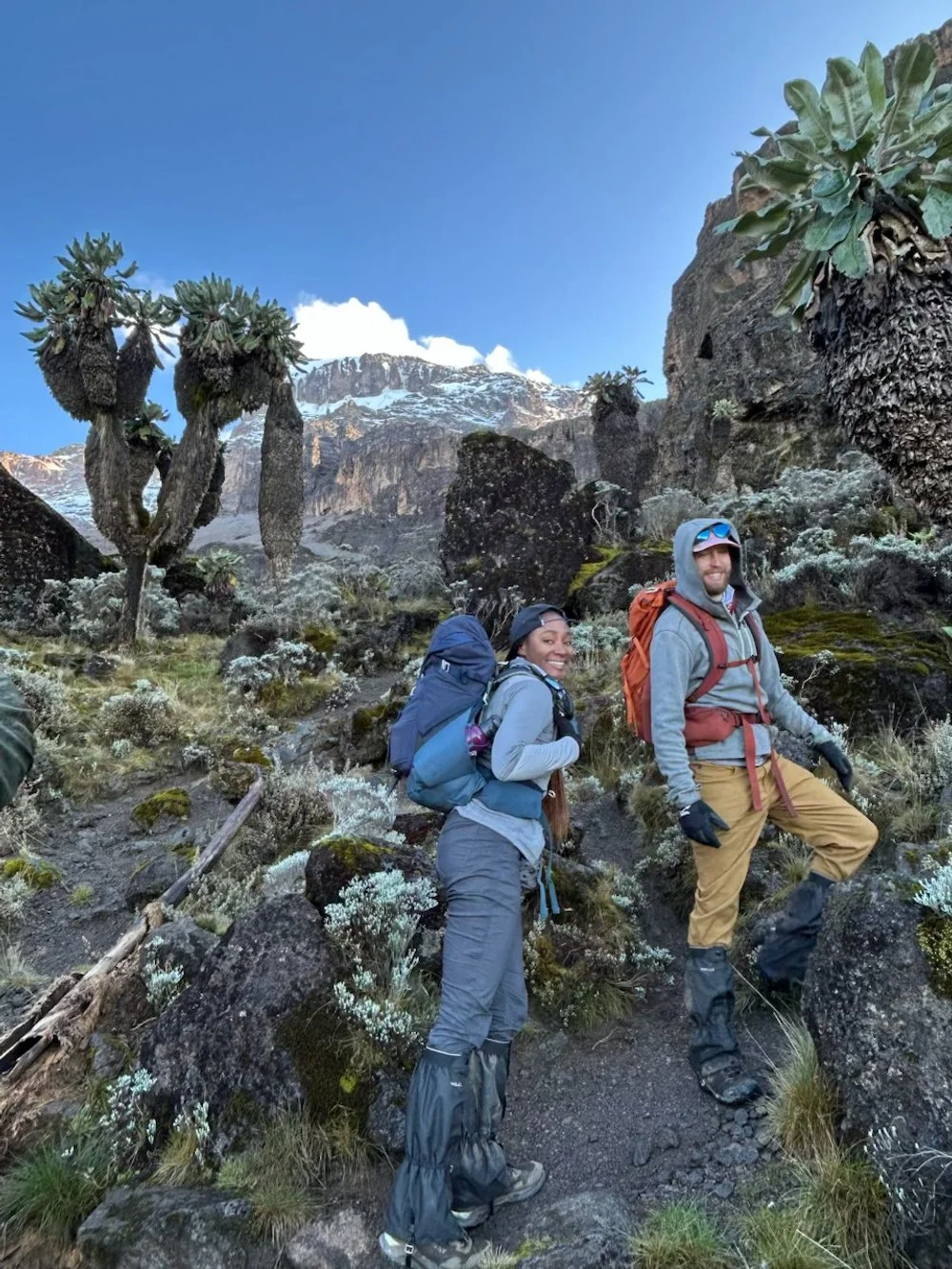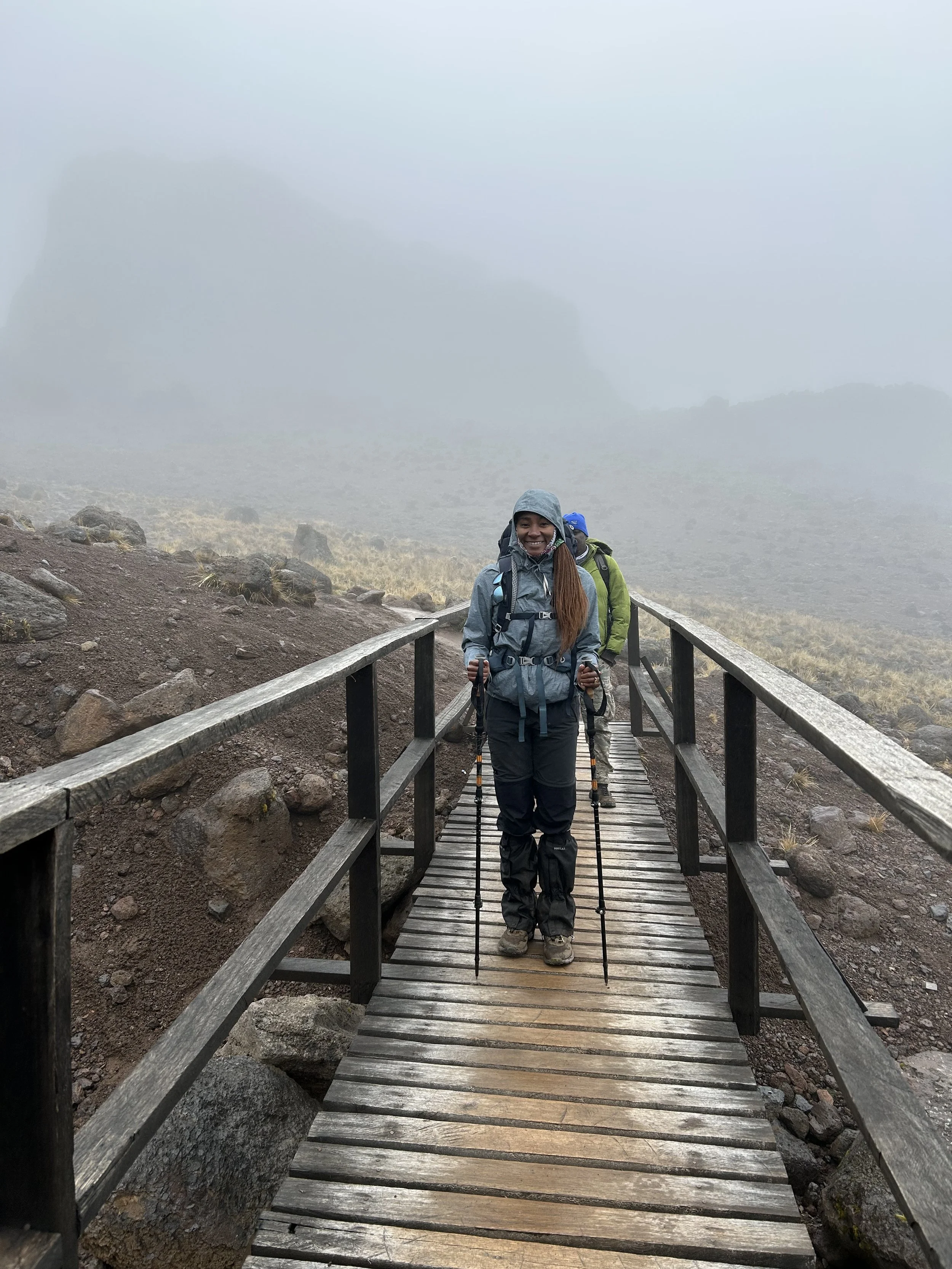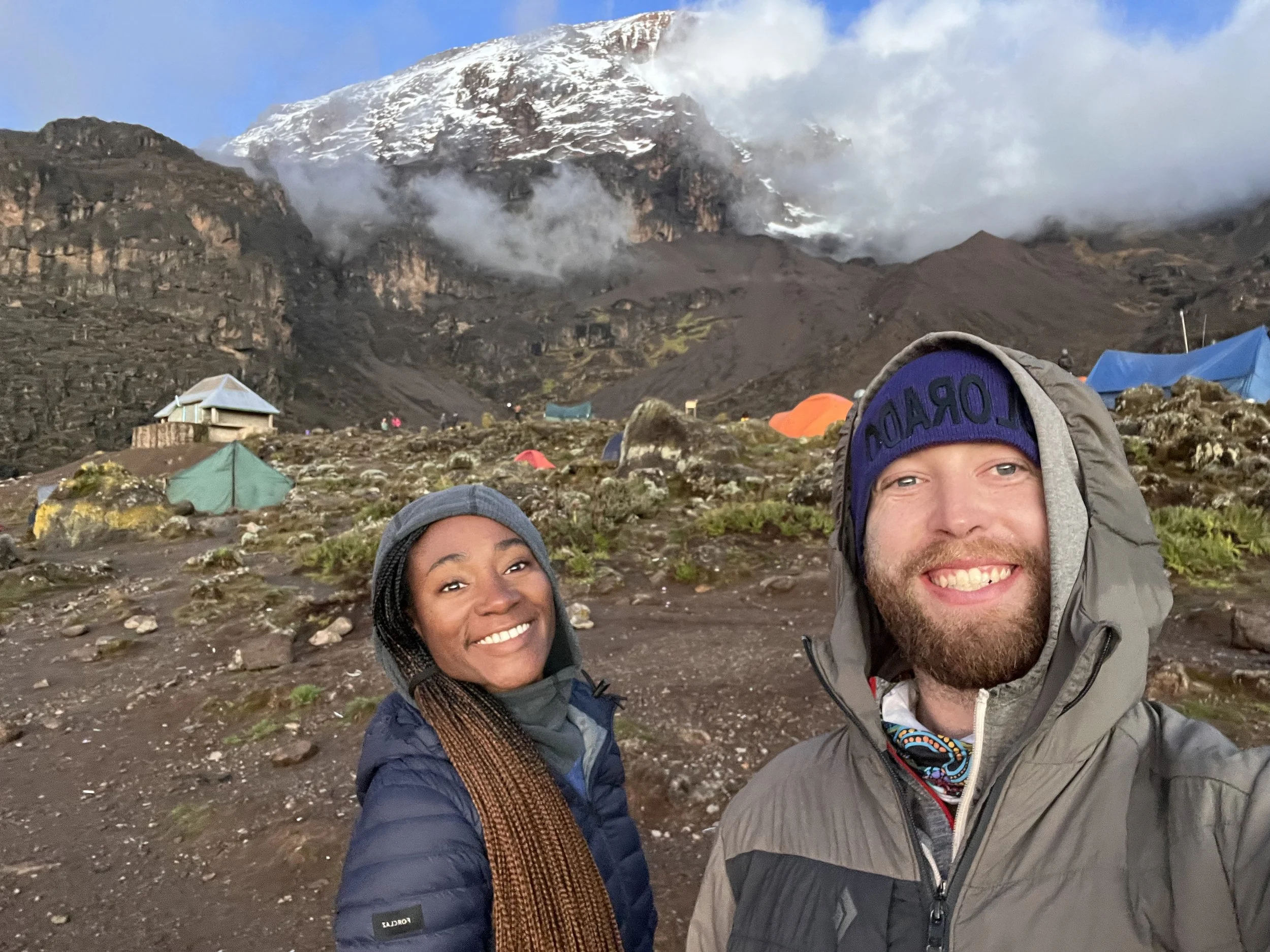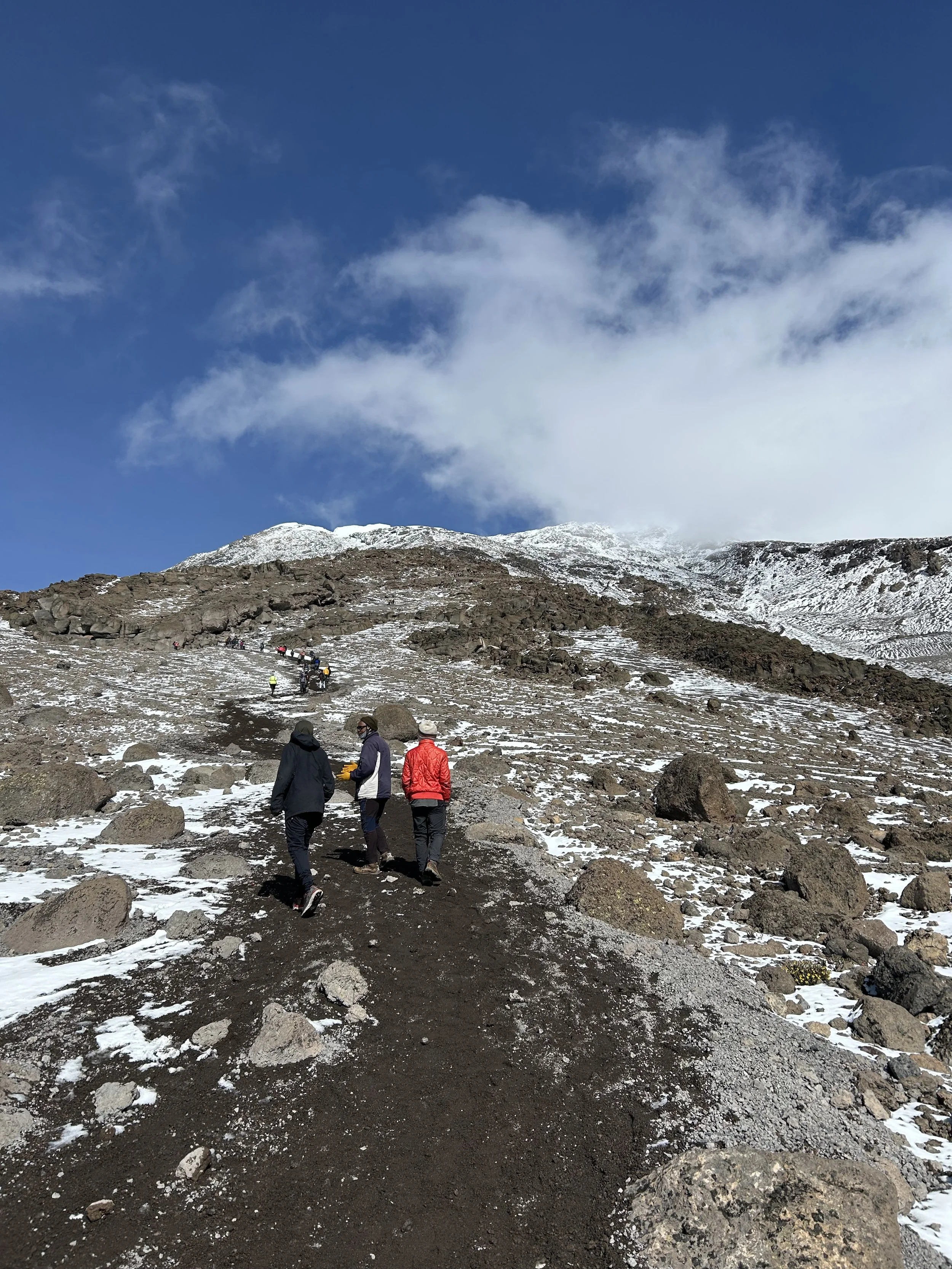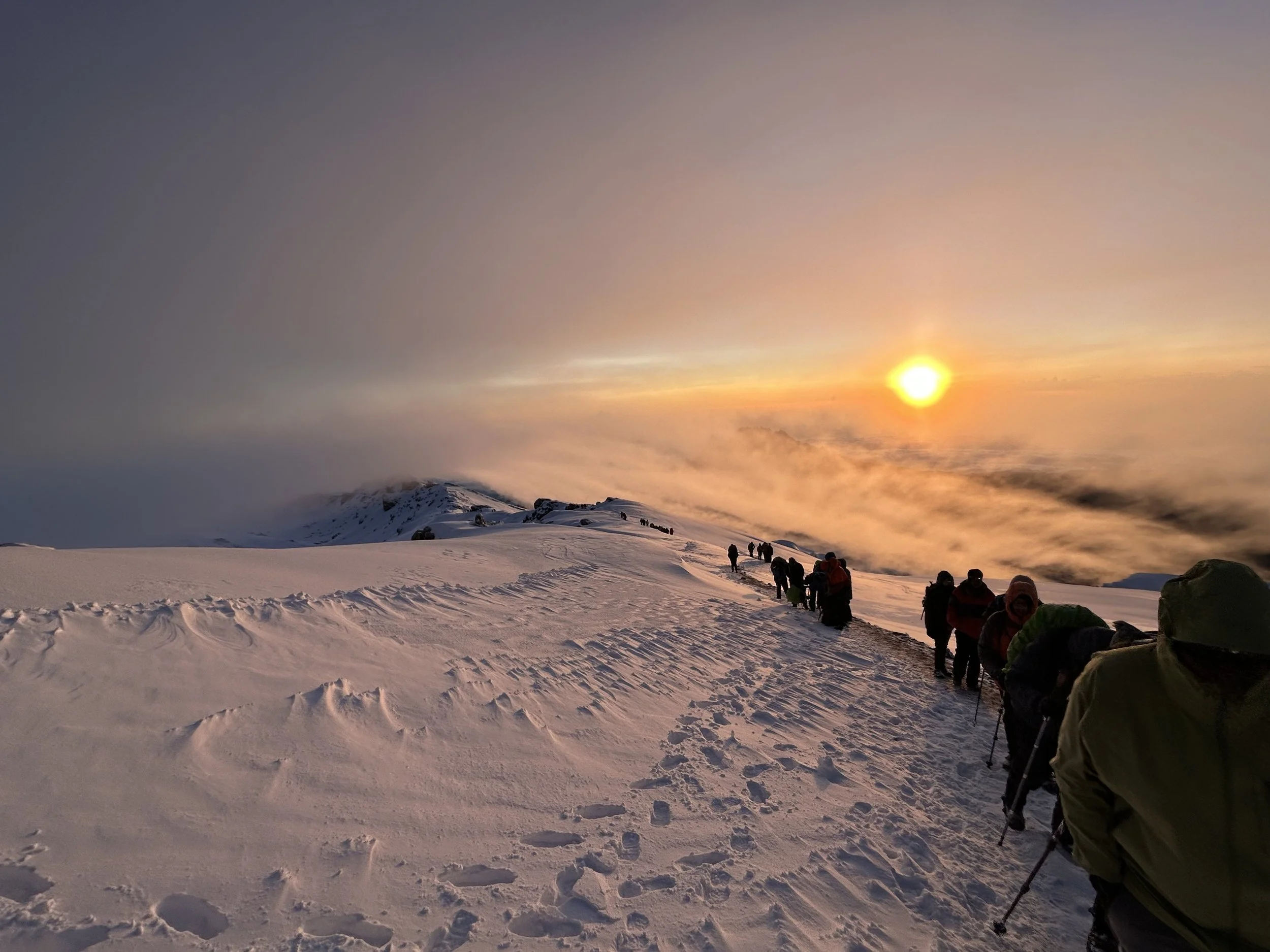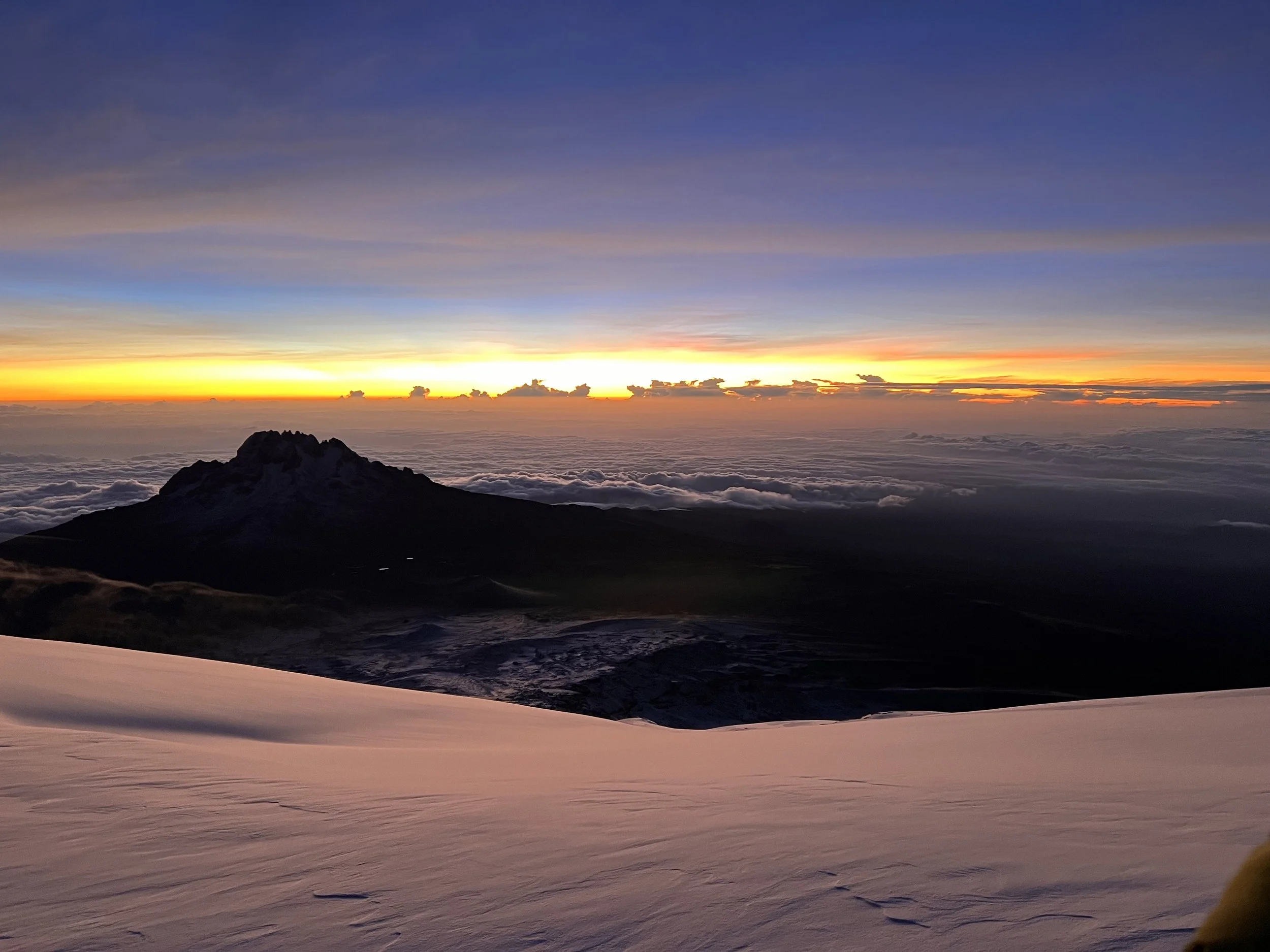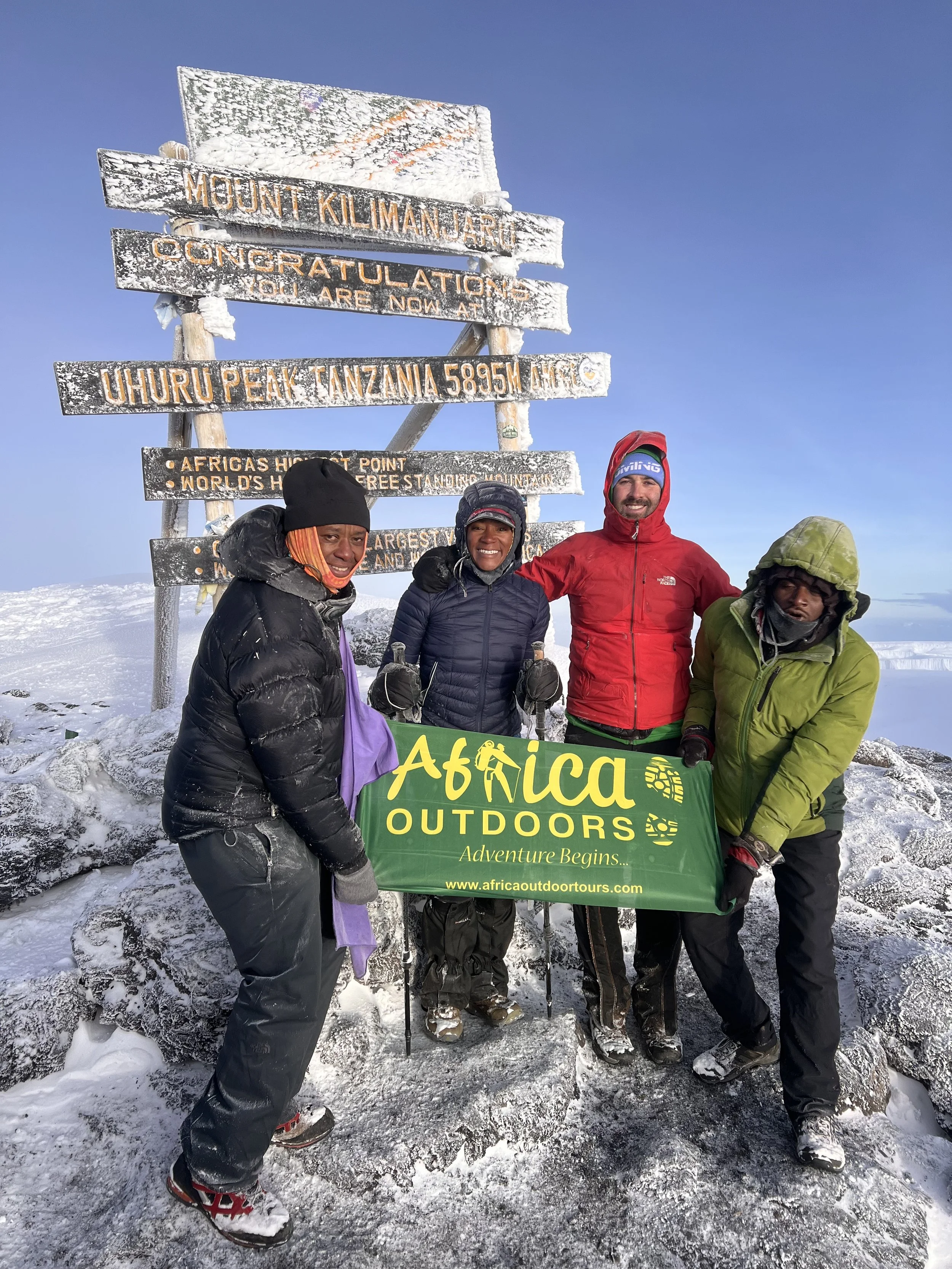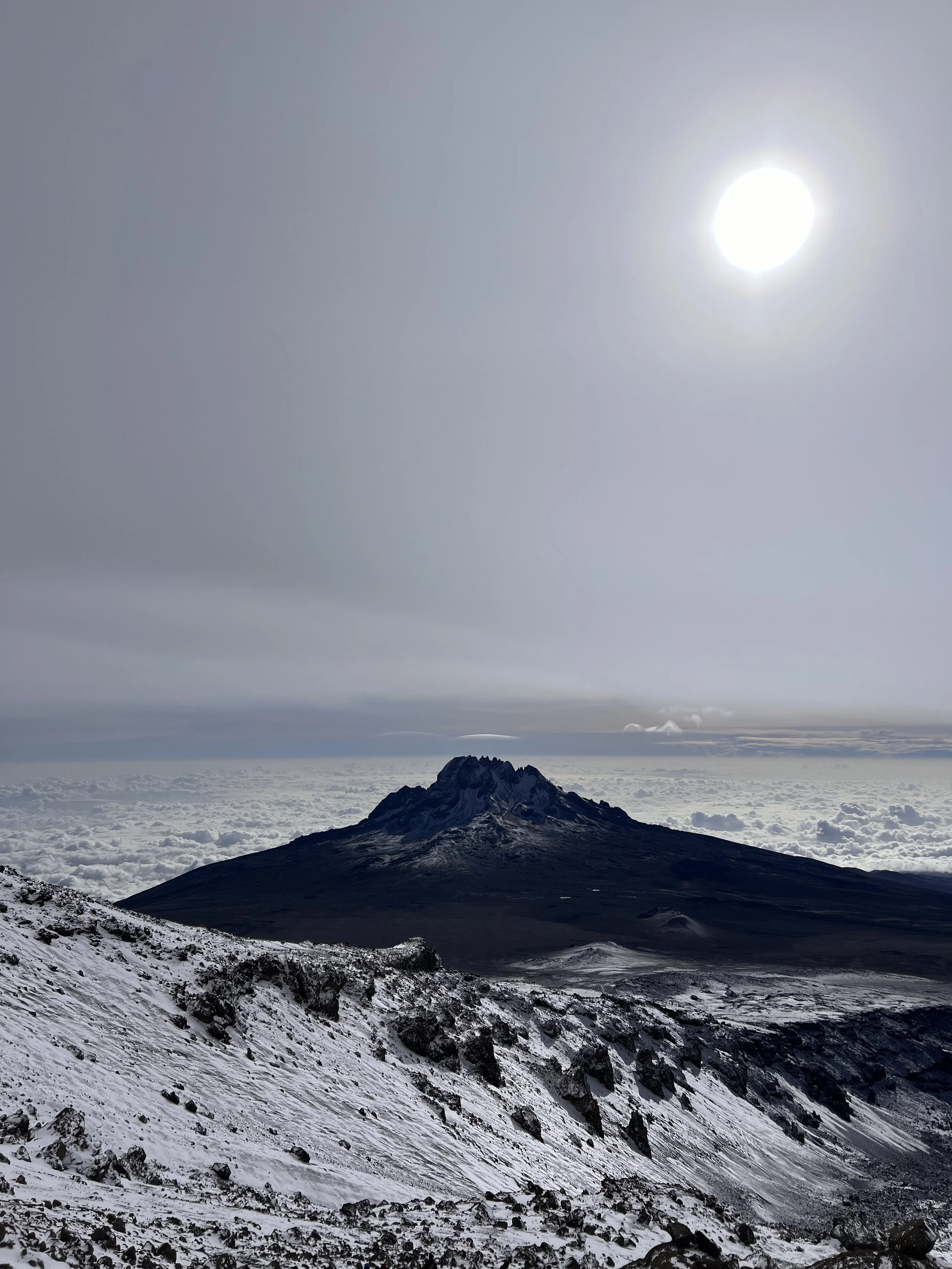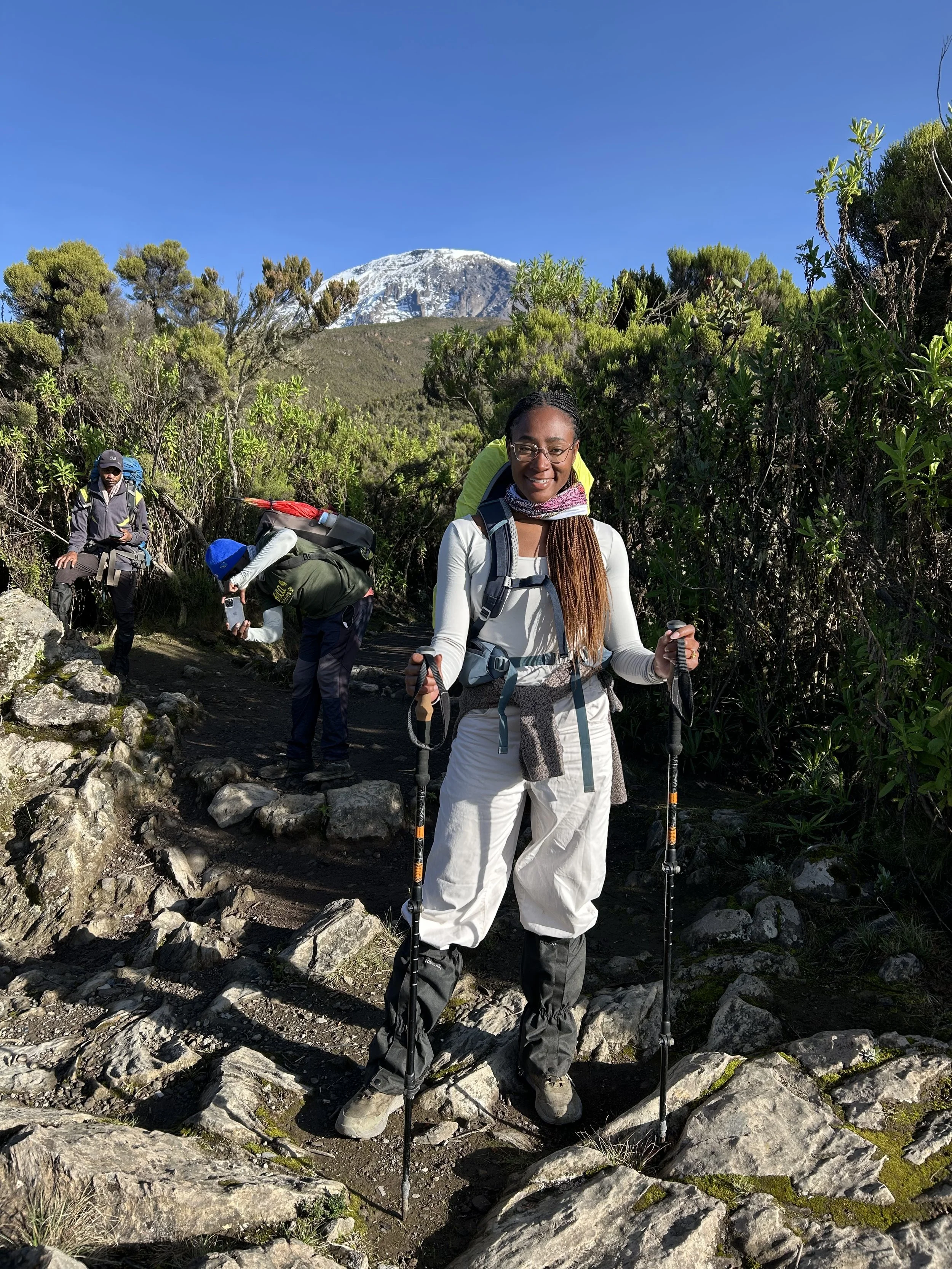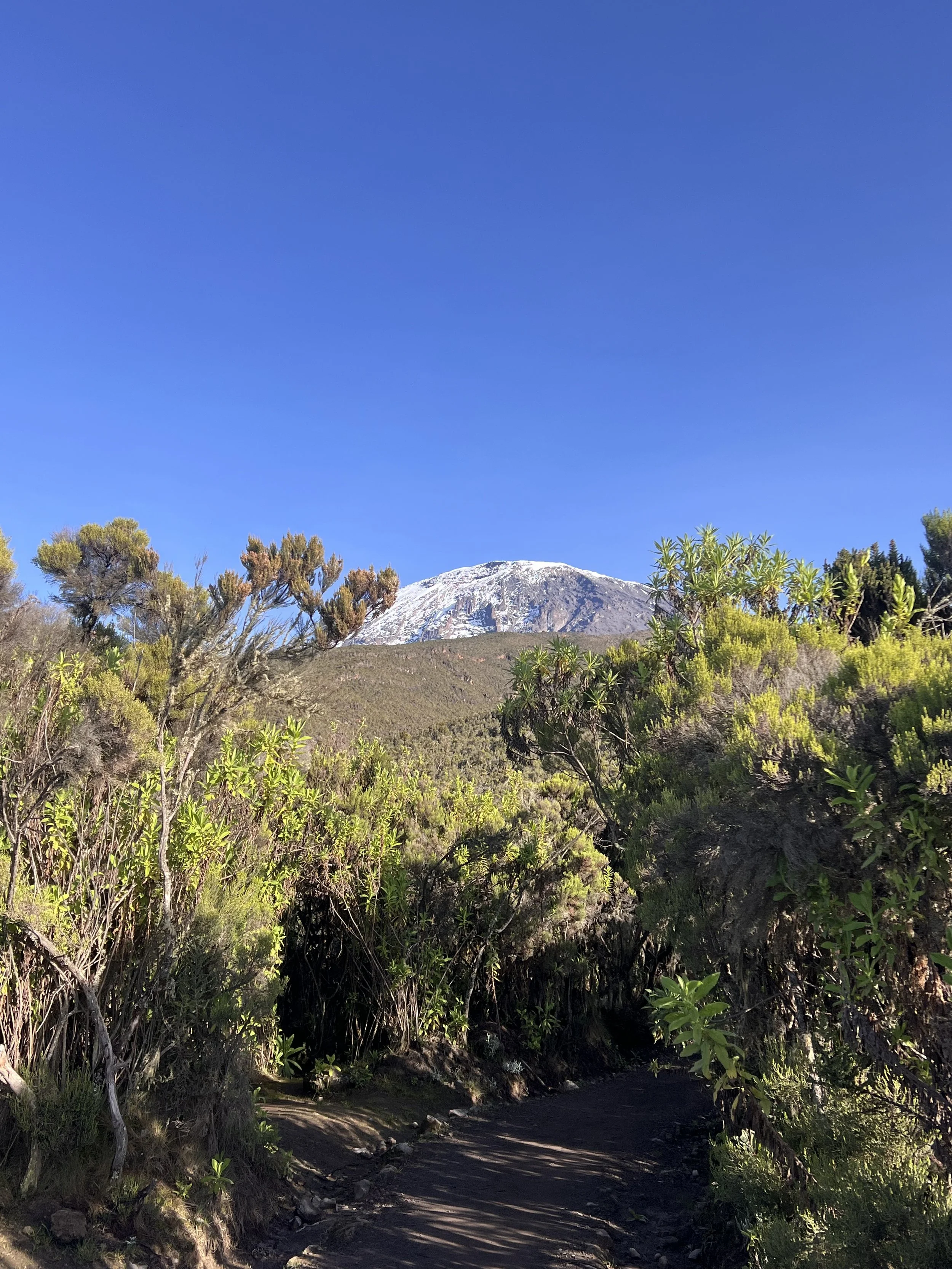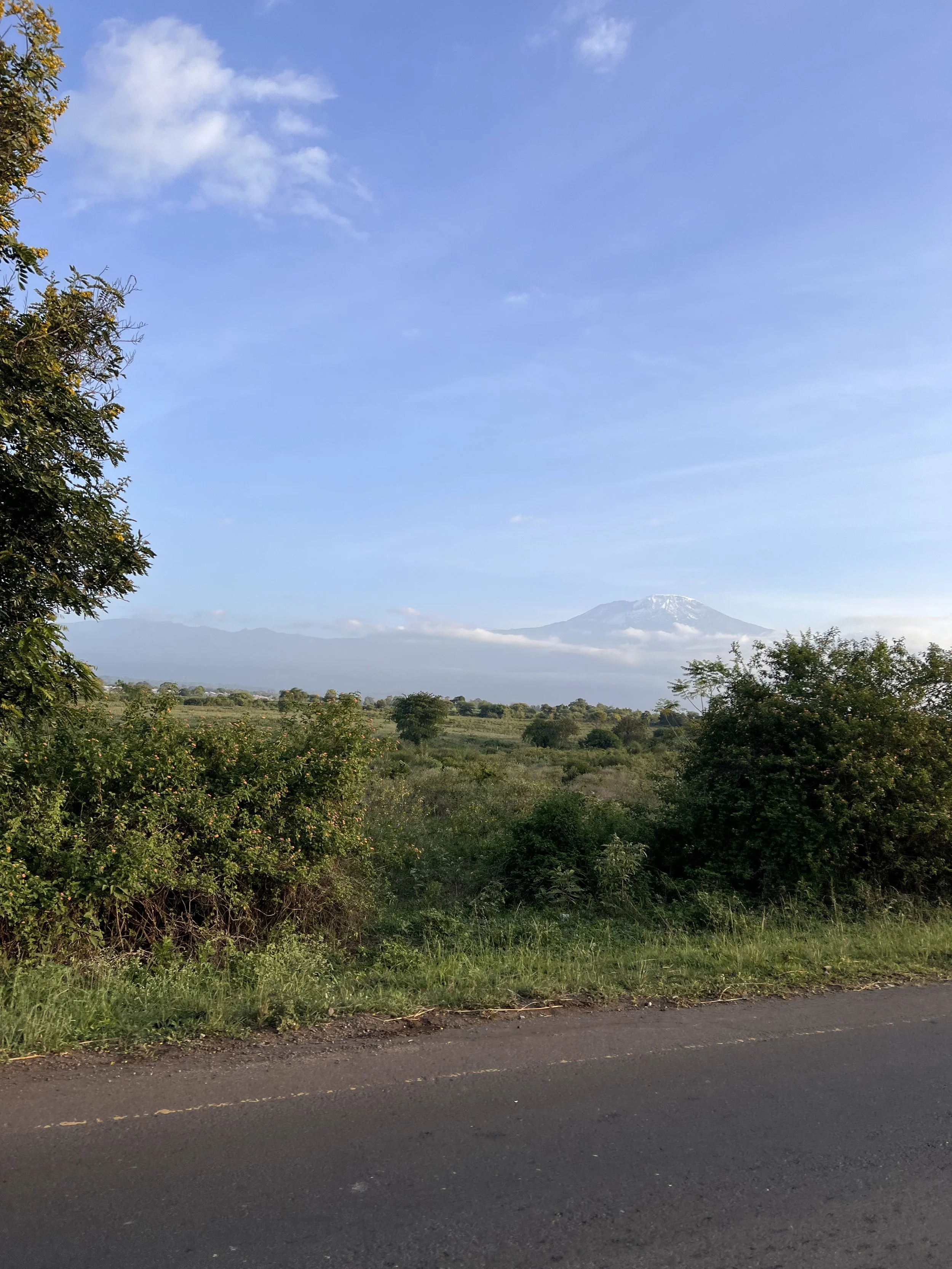Kilimanjaro & Me — 6 Life Lessons from 19,341 Feet
Mount Kilimanjaro. The name itself conjures images of vast landscapes, breathtaking sunrises and sunsets, and the ultimate test of physical and mental endurance. For years, it was a distant dream, a pin on my mental map of "someday" adventures. While it took a bit longer than I initially anticipated, the journey to the summit – and the lessons learned along the way – were more profound than I could have ever imagined. This isn't your typical Kilimanjaro guide. This is about the life lessons I unpacked, one grueling step at a time.
At 21, I stumbled across a photo of a group of Black hikers climbing Mount Kilimanjaro on an Instagram travel page. I was instantly filled with curiosity and determined to learn more about this trek. Seeing people who looked like me embracing the wilderness, especially tackling one of the world's seven summits, was incredibly powerful. I was hooked! Five minutes later, I was deep down the rabbit hole, researching different routes, the best seasons to climb, the financial commitment, and the equipment needed for a successful trek. I even took it a step further and bought a couple of books – one being Kilimanjaro - The Trekking Guide to Africa's Highest Mountain – and trekking poles. While maybe a wee bit premature, I used that as motivation to keep my eye on the prize: climbing Africa's tallest mountain.
Fast forward 11 years later at 19,341 feet, I successfully completed six days of the Lemosho route to the summit — somehow, with all limbs and sanity intact! While a post packed with practical tips and recommendations for the trek is definitely coming, I wanted to kick things off from a different angle. Here, I'm sharing the lessons learned during those six wild days on Kilimanjaro – through rainforest, alpine zones, and even a summit blizzard. So, if you landed here looking strictly for gear lists or route advice, hang tight for that post. This one dives into six big takeaways from the climb that resonate far beyond the mountain, applying to anyone at any stage in life.
Lesson 1: It's okay to have dreams deferred.
In the words of my trekking guide, "pole, pole," which means "slowly, slowly," a common phrase used throughout each day of the trek. And while it was beneficial to have that reminder to go slowly on the mountain, it served as a reminder for all things: life is not a sprint; it's a marathon. Coming from a Western culture, where instant gratification often rules our daily lives, this lesson stood out as one I cherish most deeply. It's the grace found in accepting our timeline. The quiet understanding that it's okay to move slowly, trusting that clarity will come. It's OK not to have it all figured out and to trust the process. And it's OK to pause or delay, trusting that the journey itself holds all the wisdom. Climbing Mount Kilimanjaro sparked as a goal in my early twenties, and I was certain I could accomplish it within a year... but life, as it does, unfolded differently. Young, broke, and fresh out of college, so there was simply no way I could swing $5,000 to fly across the world to hike a mountain back then. As career moves, family needs, and further schooling took priority, that summit dream got shelved, becoming a hope deferred for over a decade. Looking back, if I had summited the mountain in my early twenties, I'm certain I wouldn't have truly appreciated the depth of commitment required or the richness of the experience. The eventual climb wasn't diminished by the wait; it was proof that the delay wasn't denial, just part of the necessary pace.
Lesson 2: Prepare your mind like you prepare your body.
I knew committing to the climb of Mount Kilimanjaro would require a lot of preparation. While I prepared heavily through physical training – I practically lived on the StairMaster, lifted more weights than I care to count, squeezed in weekend hikes, and even did a couple of difficult hikes leading up to the trek, such as to Cotopaxi base camp in Ecuador and Mount Kenya – I completely underestimated the mental preparation required. The sheer mental grind of pushing on was real, and I wasn’t sure I had it in me. On the first day of the trek, we were met with heavy downpour in the rainforest zone, followed by days of trekking in hail, snow, and wind. Thoughts of bailing and retreating to my warm, comfy hotel bed? Constant thoughts on that climb. There were points when I was so ready to just give in to the exhaustion and doubt. I poured all my energy into building physical endurance, completely overlooking the mental fortitude the mountain would demand. But you can't summit wallowing in self-pity. I had to give myself a mental shake, lock into the goal, and lean into the discomfort. Because here’s the truth I learned trekking in the Arctic zone: tackling challenges when you’re tired and questioning everything builds something unbreakable inside you. It strengthens your core for facing any difficulty in life. Often, it's your mind, not just your legs, that gets you through. So whatever your climb looks like – a literal mountain, starting that passion project, working hard for that promotion – remember that building mental endurance is non-negotiable. Prepare your mind as relentlessly as your body, then go get what you came for.
Lesson 3: Step outside your comfort zone – that's where the magic happens.
We all know we're supposed to step outside our comfort zone. Intellectually, it makes sense. But actually doing it when things get genuinely hard? That's a whole different story. I've cheered friends on towards scary goals while my own feet were rooted in fear. It’s easy to champion bravery from the sidelines. But the real growth demands we step into that discomfort, even when every instinct screams 'NOPE!' For me, the ultimate reality check was summit night at 12:30 a.m., pitch black darkness swallowed by a relentless blizzard, just forcing one foot in front of the other, always upwards. The physical and mental exhaustion was intense. 'Why am I even doing this?' I had to dig deep and reconnect with my “why”, redefine my limits, and prove that doubting part of myself wrong. And right there, outside my comfort zone, I realized that growth requires reaching beyond what feels possible. I couldn’t let that little voice in my head talk me out of doing hard things! Embracing the challenge unlocked resilience, self-belief, and a deep understanding of what I’m truly capable of.
Lesson 4: Not everything is a competition.
Being competitive is just part of my DNA. Deep down, there's always a voice pushing me to be the fastest, the best. Kilimanjaro, however, had other plans – humbling ones. Because I'd already tackled Mount Kenya (supposedly the harder climb), I walked onto the Lemosho route feeling way too sure of myself. The guides kept saying 'pole pole,' but all I heard was a challenge. 'I can go faster,' I thought, eager to prove it. The first couple of days, I pushed the pace, shaving time off the estimates, feeling a ridiculous sense of pride – even as my lead guide subtly reined me in. Then came the inevitable crash. My body, keeping perfect score of my foolishness, started shutting down. It forced the hard question: Who am I competing with here? The mountain doesn't care about speed records. This climb wasn't a competition; it was an invitation – to respect the immense nature around me, listen to my own limits, and actually soak in the staggering beauty I was racing past. Trying to 'win' was actively stealing the real prize. I had to consciously silence that competitive voice, truly embrace 'pole pole' in body and spirit. Only then did the mountain really open up. The real victory isn't crossing a finish line first; it's fully showing up and being present for the journey.
Lesson 5: Your accomplishments are always worth celebrating.
When I summited Kilimanjaro, I was flooded with an overwhelming sense of pride and accomplishment. After so many years of dreaming of this day, I FINALLY did it! I couldn't wait to share the story, the struggle, the victory. But while the 'congrats!' were nice, I also encountered a surprising amount of...well, meh. A polite smile here, a quick subject change there. Unless someone understands the depth of the struggle, they can't fully appreciate the height of the accomplishment. Your accomplishments belong to you, and their value isn't measured by external applause or understanding. Don't wait for others to fully 'get it.' If no one else celebrates you, celebrate your damn self! You earned it.
Lesson 6: And finally, Gratitude, Gratitude, Gratitude!
Above all, I am so grateful for the opportunity to have experienced the fullness and magic of Kilimanjaro. The vast beauty and diversity of the mountain often left me breathless. I left Mount Kilimanjaro in deep gratitude to the incredible guides and porters who risk their lives daily to accommodate the increasing number of people climbing. Guides and porters often leave their families for weeks at a time to trek up and down the mountain. My gratitude for them is endless. A special shout-out to the team at Africa Outdoors! I was also incredibly grateful for my body's resilience and its ability to walk 8+ hours a day in harsh, unpredictable weather and at high altitudes without getting sick or injured. And I'm grateful for family and friends who encouraged and cheered me on along the way.
Looking back, I also see how powerful practicing gratitude was during the toughest stretches on the mountain itself. When the cold bit deep, exhaustion screamed, or doubt crept in, intentionally finding something to be thankful for like the incredible strength of my own legs carrying me another step, the warmth of the sun breaking through clouds, the shared encouragement of the group, even just the ability to breathe that thin, high air — became a source of strength. It shifted my focus from the struggle to the privilege, providing fuel to keep moving forward.
Appreciating the experiences you have, the people who support you, and the beauty of the world around you truly fosters a sense of contentment and well-being; Kilimanjaro was a powerful reminder of this.
Mount Kilimanjaro was more than just the highest peak in Africa. It was a teacher and a mirror reflecting back the lessons I needed to embrace the most. The "pole, pole" pace became a mantra for patience and delayed gratification. The brutal yet beautiful conditions hammered home the need for preparation and mental resilience. The discomfort of the climb forced me to step outside my comfort zone, not just physically but emotionally. The mountain stripped away my competitive tendencies, reminding me that the most meaningful journeys aren't races. It taught me to celebrate my own accomplishments, regardless of external validation. And, most importantly, it instilled a deep sense of gratitude – for the experience, for the incredible team, for my own body's strength, and for the beauty of the world.
These six lessons aren't just applicable to climbing mountains. They're about navigating life's challenges, embracing personal growth, and finding joy in the journey, not just the destination. Kilimanjaro wasn't just a check off my bucket list; it was a transformative experience that reshaped my perspective and continues to inspire me.
So, what's your Kilimanjaro? What challenge are you putting off? What dream are you waiting to pursue? What discomfort are you avoiding? Maybe it's time to start planning, preparing, and climbing. The view from the top – whatever that "top" may be for you – is worth it. And the lessons you learn along the way? Priceless.
What mountain are you climbing? Share your thoughts in the comments below!



